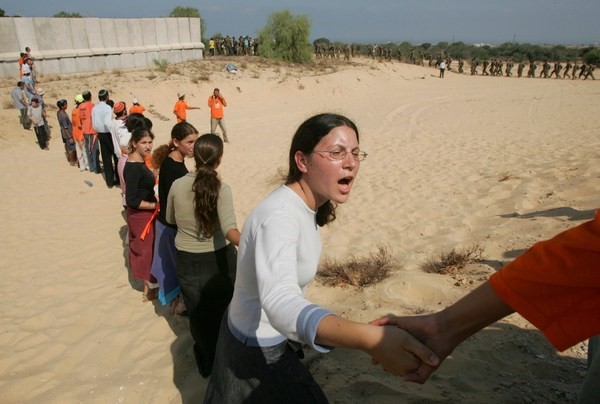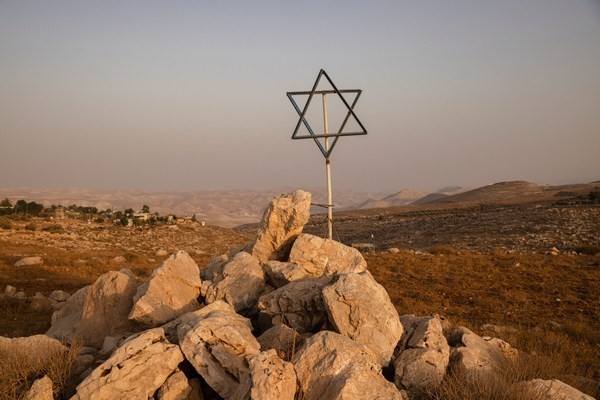TEL
AVIV — A group of Israelis hoping to live in the Gaza Strip at the war’s end
has already published maps imagining Jewish-majority towns dotting the
territory. Far-right Israeli lawmakers have drafted plans to make such
settlements legal.
Itamar Ben-Gvir, Israel’s far-right Minister of National
Security, has also called for Arab residents to leave Gaza so that Jews can
populate the coastal strip.
اضافة اعلان
After
four months of Israel’s war and a death toll that officials in Gaza say exceeds
27,000, international pressure is mounting on Israel to withdraw from Gaza. But
a small group of Israelis is pushing for the opposite: They want Israel to
retain control of the territory, and reestablish the Jewish settlements that
were dismantled in Israel’s 2005 withdrawal from Gaza.
Yair
Cohen, a 23-year-old
Israeli Occupation Forces (IOF) soldier, said, “The minute
the war is over, we will build our homes there. The question is not whether we
will return when the fighting is over, but if there will be a Gaza.”
To
Palestinians, the settlers’ plans would most likely end in mass displacement
and an end to their dream of a Palestinian state, a dream that much of the
world would like to see realized. The Palestinian ambassador to the UN, Riyad
Mansour, told the body in January, “Israel wants the Palestinian people to
choose between destruction and displacement,”.
But
unlikely as resettlement seems to outsiders, the idea is being promoted at a
time when Israel has yet to decide how postwar Gaza should be governed.
Though
the US and other powers are pushing for Gaza to form part of a Palestinian
state, Israeli
Prime Minister Benjamin Netanyahu has other priorities,
including staying in power and placating his far-right coalition partners. In
the absence of a government plan for after the war, talk of settlement is
filling the vacuum and alarming Israel’s allies.
The
movement to settle Gaza is driven by nationalist fervor, religious zeal, and
security concerns after
October 7, 2023.
 Supporters
of the settler movement try to prevent soldiers from getting past them to
houses in the settlement of Neve Dekalim in the Gaza Strip, Aug. 15, 2005. The
United States and many other nations are pushing Israel to hand Gaza back to
Palestinian leadership. But within Israel, a powerful lobby is trying to rally
support for Jewish settlements there.
Supporters
of the settler movement try to prevent soldiers from getting past them to
houses in the settlement of Neve Dekalim in the Gaza Strip, Aug. 15, 2005. The
United States and many other nations are pushing Israel to hand Gaza back to
Palestinian leadership. But within Israel, a powerful lobby is trying to rally
support for Jewish settlements there.
Israel’s
war on the strip and the absence of a clear and alternative plan for Gaza’s
future provide what the settlers see as an opportunity. For nearly two decades,
settlers and their supporters have viewed the 2005 withdrawal as a catastrophic
setback.
Netanyahu
and Yoav Gallant, the Israeli Defense Minister, have ruled out resettlement and
the idea lacks support from most of the Israeli public. A Hebrew University
poll in December found that 56 percent of Israelis oppose resettling Gaza. But
a vocal minority is trying to build momentum behind their project, and they are
supported by one-third of the lawmakers in Israel’s far-right governing
coalition.
The
settlers’ dream of Israelis returning to Gaza would mean replacing the
Palestinians currently living there, and while the settler movement is divided
on how to do that, some extremist settlers advocate deportation.
At
a recent settler conference in Jerusalem, which was attended by 3,500 people,
including some far-right ministers, one group held up signs reading: ‘Only transfer will bring peace.’
As
he addressed the meeting, Ben-Gvir saw the posters and told the group, “You are
right.” Then, of the Palestinians living in Gaza, he added, “They should go
away from here.” Additionally, some attendees shouted, “Only eviction!”
The
settler movement has a long history and powerful supporters, including Ben-Gvir
and Israel’s minister of finance Bezalel Smotrich. Both men wield outsize
influence because their small parties are critical to keeping Netanyahu’s
governing coalition in power.
The
Israeli government began building settlements after the Arab-Israeli war of
1967 when Israel annexed the West Bank from Jordan and Gaza from Egypt.
Most
countries consider the settlements illegal and regard them as an obstacle to
the creation of a sovereign Palestinian state. Though Israel withdrew from
Gaza, more than 200 settlements housing roughly half a million Israelis remain
in the occupied West Bank.
Beyond
far-right politicians, the movement also includes Israelis who lived in Gaza
settlements before 2005, as well as religious hard-liners from West Bank
settlements. A keynote speaker at rallies, Uzi Sharbav, was convicted of taking
part in the murder of three Palestinians in the 1980s. Although sentenced to
decades in prison, he was pardoned in 1990.
Some
settlers view living in Gaza through a religious prism, seeking to inhabit the
land of their ancestors in fulfillment of what they believe was a promise made
by God in biblical times. Others say settlements are essential for Israel’s
security, arguing that a civilian presence among Palestinians makes it more
difficult for militants to organize attacks.
 A
Star of David on the edge of Tekoa Dalet, an illegal outpost in the West Bank,
Oct. 22, 2023.
A
Star of David on the edge of Tekoa Dalet, an illegal outpost in the West Bank,
Oct. 22, 2023.
The
push to resettle Gaza is happening both in political channels, in which
far-right politicians are trying to give it legal backing, and at the
grassroots.
In
one provocation in January, settlement supporters briefly sent their children
to break through military lines to play inside the buffer zone near the Gaza
border.
In
November 2023, 11 members of Israel’s parliament, mostly from Netanyahu’s
party, Likud, proposed repealing a law that prohibits Israeli citizens from
entering Gaza.
Likud
has not advanced those proposals, and Netanyahu has called resettlement ‘an
unrealistic goal.’ The US recently imposed financial sanctions on several
settlers in the West Bank amid a rise in settler-led attacks on Palestinians
there, highlighting foreign opposition to the settlers’ plans.
However,
the settler movement has a track record of ignoring both foreign criticism and
official policy, often building unauthorized settlements that later gained
government approval.
Already,
settler leaders are drawing up plans to infiltrate Gaza, hoping to build
unauthorized villages that could eventually be recognized.
In
early February, over 100 extremist settlers entered a closed military zone near
the border, trying to breach Gaza. The military turned them away.
One
of the settlers, Amos Azaria, explained how supporters would start with small
encampments.
“We
will keep trying to get inside,” he said in an interview shortly after the
failed incursion. “Should we have been successful today, we would probably be
removed quickly. But we will take more substantial steps. We will arrive with
tents and try to settle. Many families are ready to do whatever it takes.”
Some
believe that IOF soldiers already in Gaza could help settlers. Numerous IOF
soldiers have posted videos from Gaza in which they express support for
resettlement.
“It
is our country, all of it, Gaza too,” Captain Avihai Friedman, a military
rabbi, was recorded recently telling a group of soldiers in Gaza. “The whole
promised land.”
Settler
leaders have tried to shake off the notion that they are driven by religious
conviction alone. They argue that such communities make Israel safer.
“Only
settlements justify long-term military presence, which in turn ensures
security,” said Brigadier General Amir Avivi, former deputy commander of the
Gaza Division and now chairman of the Israel Defense and Security Forum (IDSF),
a right-wing institute.
However,
many Israelis disagree. Omer Zanany, a security expert at a foreign policy
research group, the Mitvim Institute, and Berl Katznelson Foundation said “The
settlements there were a security risk.”
The
Palestinians’ ambassador to Britain, Husam Zomlot compared resettlement with
the mass displacement of Palestinians that surrounded Israel’s founding in
1948. “The Biden administration could end all this tomorrow if it stopped
shielding, arming, and funding not only Israel but its illegal expansion,” he
said.
Opposition
also extends to some settler leaders. The mayor of Efrat, Oded Revivi said
those supporting resettlement had ‘no grip on reality,’ adding, “There is no
justification for deporting Palestinians.”
Although
Netanyahu’s government does not officially back resettlement, critics fear the
idea will gain momentum because Israel’s leaders have not proposed a real
alternative vision.
“What
scares me is that the settler movement is playing in an empty field,” Zanany
said. “No one else is pushing a vision for after the war.”
Read more Region and World
Jordan News



